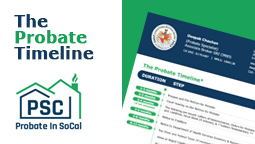What happens if a will appoints no executor or an executor can’t or won’t serve their position when it comes to probate real estate? Who is next in line to do this role?
This is where it gets pretty tricky. Sometimes a will won’t name an executor or name a person who has passed away or someone who does not want to act as the estate representative. If that person is a former spouse, meaning the marriage was dissolved or annulled, the spouse does not have to serve as an executor unless the will specifically state so. This is only for marriages that were dissolved after 1984.
If there is a will, but there is no co-executor or an alternative executor, this is where formal probate comes into play. The courts will need to appoint an executor, also called an administrator, to act as the representative or executor. They will be appointed in the same order of priority as a regular executor or administrator except that any person who receives property under the will has priority over those who do not. Any person who takes over 50% of the estate’s value under the will has first priority to serve as administrator or appoint someone to act as an administrator.
There’s a list of available appointing administrators when someone passes away without a will.
- Surviving spouse or domestic partner
- Children or heirs
- Grandchildren
- Great-grandchildren or other issues as set forth
- Parents
- Siblings
And the list goes on from there, including grandparents, issues of uncles, aunts, and cousins, predeceased spouse or children of a predeceased spouse or other next of kin. So there’s quite a laundry list of priorities when appointing an administrator. If the list goes on further than what is listed here, you’ll need to seek counsel as to the order.
If formal probate is not necessary due to careful planning of the estate, or it’s not required if most of the descendant’s assets were held in joint tenancy or a trust. If no formal court is needed, there will be no court-appointed representative. So who then access the estate representative?

If the decedent has left a will, they will likely have a maintenance executor. They will take over informally and do whatever is necessary to settle the estate and transfer property. Even in the most extensive estate wills, there may not be an executor; however, typically, a close relative trusted friend, or perhaps the one who will inherit the most, will be named the representative. Typically families and friends will decide this among themselves, and it’s not uncommon for several people to share in the responsibility, especially if there’s a significant dispute. If family and friends cannot decide, a lawyer should help decide.
This should also occur if the person named as the executor does not want the responsibility any longer. The burden should fall to someone who will responsibly maintain the priorities outlined in the will. Most of the time, a lawyer or even the court will not appoint someone who really has no desire or intention to follow through with the administrative duties.
The executor or administrator is not a comfortable position. It can take several months and even up to a year to determine all of the factors named in a will. If there is real estate involved, personal property, funds, or stocks, you can even get more detailed. One of the most significant points to remember is not to rush through this situation. Relatives may be chomping at the bit to get their part of the inheritance. Still, as an executor, it is your responsibility to do it correctly and make sure that everything is followed by the letter of the law.
For more information about probate real estate and to answer your questions about executors being representatives, don’t hesitate to get in touch with me at any time.
